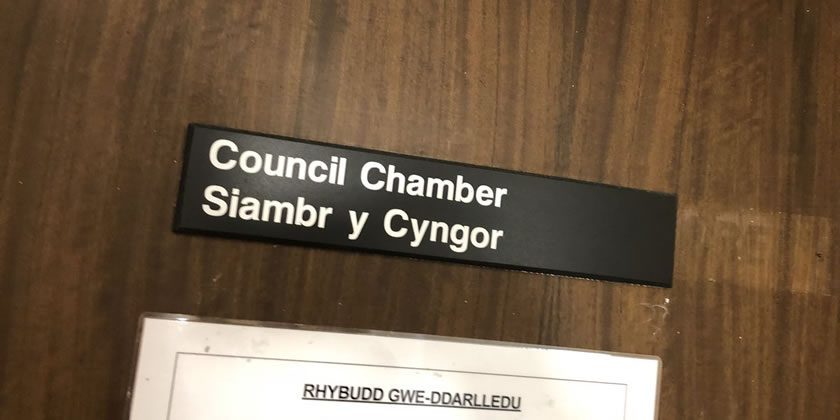Five key proposals in new Bill which aims to shake-up local government

Local Government & Elections Bill
Introduced by Minister for Local Government & Housing, Julie James (Lab, Swansea West)
Bill (pdf)
Explanatory Memorandum (pdf)
Why does Wales need the Local Government & Elections Bill?
The Bill is the culmination of years of negotiation, consultation and is the only direct legislative consequence of the 2014 Williams Commission on reforming local government.
The overall aim of the Bill is to modernise the electoral and governance arrangements for local government – including some experimental elements, which I touch on later – pave the way for regional collaboration between local authorities and improve public engagement and public accountability.
The Lowdown: 5 Key Proposals in the Bill
For the sake of clarity, “local authority” in the following means the 22 unitary authorities such as Flintshire County Council.
1. An overhaul of local government electoral arrangements
In line with the provisions of the soon-to-be-passed Senedd & Elections Bill, the voting age for local government elections will be lowered from 18 to 16 and the right to stand and vote in local government elections will be extended to qualifying foreign citizens resident in Wales.
Local councils will also be able to decide for themselves whether to use single transferable vote (aka. STV, where you rank candidates by preferences) or stick to the current system of multiple first-past-the-post. Where councils approve moving to STV, it’ll need to be reviewed by the Local Democracy & Boundary Commission. STV council wards will have no fewer than 3 and no more than 6 councillors.
In addition, local authorities and community councils will be put on a permanent five-year electoral cycle, powers will be given to the Welsh Government to establish an all-Wales digital electoral register and pilots of new ways to hold local elections will be allowed (i.e. all postal-voting, new voting hours, electronic voting, electronic counting).
2. It changes disqualification criteria to stand as a councillor
Similarly to the Senedd & Elections Bill, people who’ve been declared bankrupt, are registered sex offenders, have served a prison (suspended or not) sentence of 3 months or more will be disqualified.
Council staff will be allowed to stand in elections to their employer local authority but will be required to resign if elected.
3. It changes governance arrangements
The Bill introduces a general power of competence for local authorities and eligible community councils, giving them a general power to act in their respective community’s best interests, generate efficiencies and secure value for money.
An “eligible community” council is one that hasn’t had its accounts qualified by the Wales Audit Office, has at least two-thirds of seats filled and has a suitably qualified clerk as set out in Welsh Government regulations.
Local authorities will still need to appoint a chief executive and must publish arrangements for managing their performance. The Bill will also allow job-sharing for Cabinet-level positions and places a requirement on councils to have provision for maternity leave for councillors.
Council standards committees will be required to publish an annual report, while community councils will need to draft and publish a training plan for councillors and staff.
4. It strengthens measures to improve public engagement
All local authorities will be required to publish a public participation strategy. There’ll also be a duty placed on local authorities (including National Park Authorities) to encourage local people to participate in local government.
Local authorities (but not community councils) will need to introduce public petition schemes, must webcast all public meetings (subject to regulations) and make arrangements for remote attendance by councillors.
Community councils will need to allow members of the public to make representations during meetings and they’ll also have to publish annual reports at the end of each financial year.
5. Councils can merge if they want to
The Bill makes provision for regional working by more than one local authority through joint committees. It also gives the Welsh Government the power to intervene or order one local authority to assist another one if it’s believed a council isn’t meeting performance requirements.
Any mergers will be wholly voluntary. Two or more local authorities can apply to the Welsh Government with a merger application. The Bill sets out the formal public consultation process and the regulations required to create a merged local authority. Councils can even make a request to be abolished.
How much will the Local Government & Elections Bill cost?
The explanatory memorandum is 651 pages long and a lot of it is dedicated to the costings and regulatory impacts.
The total cost of the Bill’s provisions is expected to be around £17.2million spread over 10 years. Most of this will fall on the Welsh Government, with around £3million falling on local government.
As for specific examples, lowering the voting age and expanding eligibility to qualifying foreign nationals is expected to cost £912,000 a year for the first two years, falling to £40,000-a-year between 2023-24 and 2029-30.
Training community council clerks to allow a community council to become “eligible” under the general power of competence is expected to cost, in total, anything between £280,000-£455,000. Introducing petition schemes is expected to cost £264,000 a year. The provisions in the Bill are expected to cost the Electoral Commission £187,000.
It’s unclear how much a voluntary local authority merger would cost as it’s said to be impossible to predict how many applications will come forward – though cost savings are likely to be a key consideration in going forward with a merger.
Keep up to date with what is going on in the Senedd via SeneddHome.com
Spotted something? Got a story? Email: [email protected]
Latest News
